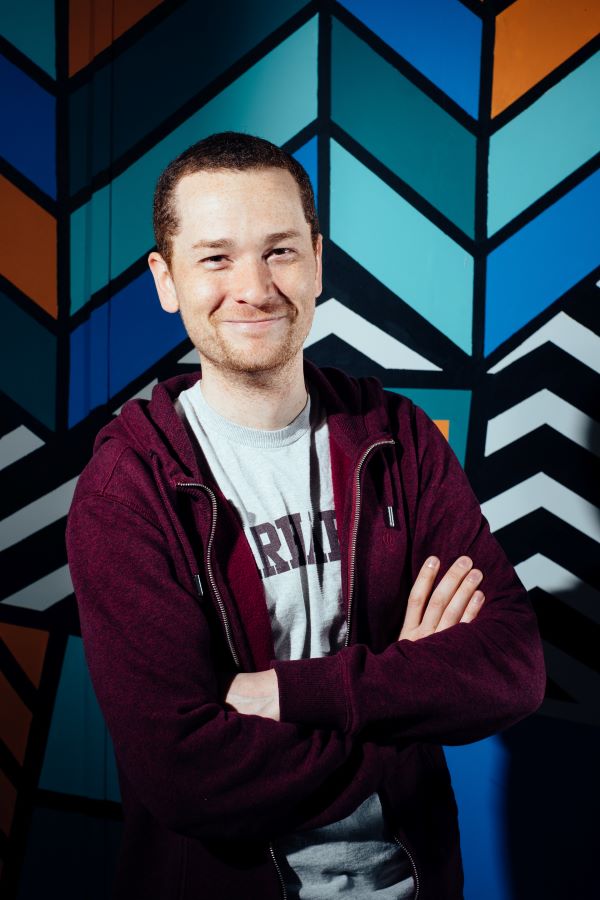I saw from my first interaction with AI that this could be humanity’s defining contribution to the universe.
Creating intelligence is what we give God the biggest credit for; this was humans aiming to achieve the same thing. A machine that can ‘think’.
Our intelligence has evolved slowly over billions of years and is confined to a fleshy lump of grey matter in a bone case on top of a fragile ape body. But machine intelligence is theoretically limitless, and has no such constraint as biological evolution or organic matter.
If a machine can ‘think’, it can ‘think more’ by just adding more computer power, more chips. It can ‘think better’ by adding more data, and consuming everything that has ever been written down or recorded. It can ‘think forever’ by making copies of itself, and upgrading to new hardware as it becomes available. It can improve itself, not just through self-help books and trips to the gym, but by constantly improving and rebuilding its architecture from the ground up.
The upsides of achieving this are truly remarkable.
Let’s take one example – personal healthcare.
Imagine a doctor in your pocket, available to talk to 24/7, analysing the huge data set produced by your body each second, knowing your whole medical history, every medical paper that’s ever existed, every intervention and its effectiveness on people that match your specific profile. The doctor can discover new treatments and drugs specifically targeted to you, can simulate one billion different paths forward and listen to your every feeling, worry, complaint, question without judgement. It is dedicated completely to you with the entirety of its existence and attention and yet can survey and pool data from every human experience – who never gets tired, distracted, closed-minded, hungry and so forth.
Now apply that to many other aspects of life: food production, conflict resolution, energy production, protecting the environment, transportation, entertainment, education, relationships . . . AI has the potential to transform everything we experience for the better.
All of that might seem a bit far-fetched, especially from where we are standing now. AI is still pretty stupid after all, but it’s in its infancy. We are looking at a toddler, bumbling around trying not to fall over. What will it grow up to become? As all parents experience, it is sure to grow up too fast and we hope we’ve done our best to shape it!
In the excitement of the potential of AI, I looked around and saw a society not really ready for its promise. Economic systems built on valuing people through work – they break down. Social fabrics built on trust – they crumble. People’s purpose – it is unclear what it will be.
Many people who have worked in AI often feel a sense of excitement and mourning for the future. In a world of superintelligent machines (that can outperform humans in every task and domain), what agency, impact, or meaning will humans have? Will we be satiated slobs with no purpose? Will we be unleashed creative geniuses with time for pursuing passions and enjoying life? It’s hard to say. Would we all even agree which we should aim for?
AI is why I created the School of Code. One way I saw to potentially help was to support people to rapidly transform, to bring them into the technical world, and empower them to have a voice in the conversation. A hand on the wheel instead of being left behind.
AI is not a tool. It is intelligence. There are questions about how we should interact with it. For example, even if it is aligned to our best interests, what does that mean? Should it intervene when we ask for something that’s bad for us?
It seems obvious in some cases. If I ask it to harm someone, I’d hope it would refuse. But what if I’m hurting myself by eating pizza for breakfast, lunch and dinner . . . should it refuse to order the food I’m asking for? What if the AI isn’t aligned to our best interests?
These lines are blurry, and these problems are those more associated with philosophy lectures, not technology labs. And yet those are the discussions we need to have and that are required to shape the future.
Elon Musk described humans as potentially a “bootloader for artificial intelligence”, saying he has “a deliberate suspension of disbelief in order to remain motivated” to keep making progress and overcome existential paralysis. I feel instead of ignoring the negatives, we need to wrestle with them.
The Stockdale Paradox, named after Admiral James Stockdale, encapsulates the approach we need. He was a prisoner of war, and survived captivity by confronting the brutal facts of his situation while maintaining faith that in the end he would prevail. Similarly, in AI development, we must confront the brutal facts, the dangers and pitfalls, but maintain faith and strive for a shared vision of a better future.
We can’t be naive and think there’s only upside. We can’t be cynical and think there’s only doom and gloom. We need to be courageous – to have the strength of mind to carry on in spite of danger. We need to confront the potential demons that lie ahead, mitigate them, but plough forwards together.
I am looking to bring together as wide a group of people as I can to have these discussions and make sure we can shape this path forwards before it’s too late.
*Chris Meah is the founder and CEO of School of Code
Founder of Cake
By Chris Morris, real estate partner at Shoosmiths
Three-storey secondary academy will open in 2021
Breakfast briefing aims to provide the answers
Advice comes after evictions ban is extended
Lockdown study pays off for Moseley businessman
Systems help make the most of a building's energy profile
Apprenticeship programme has around 140 vacancies available
Solicitors award first places on new programme
Firm welcomes over 200 new joiners as it looks beyond pandemic